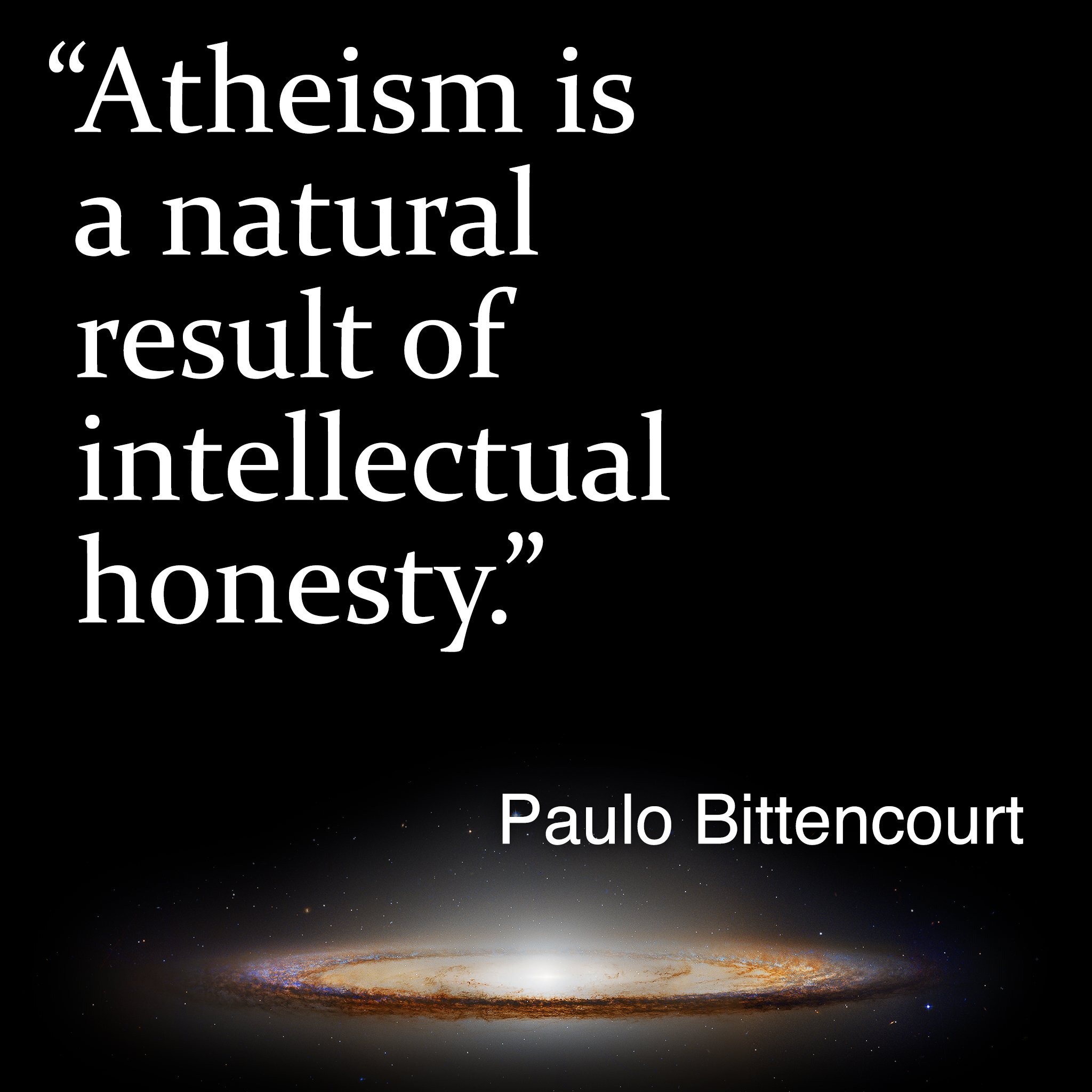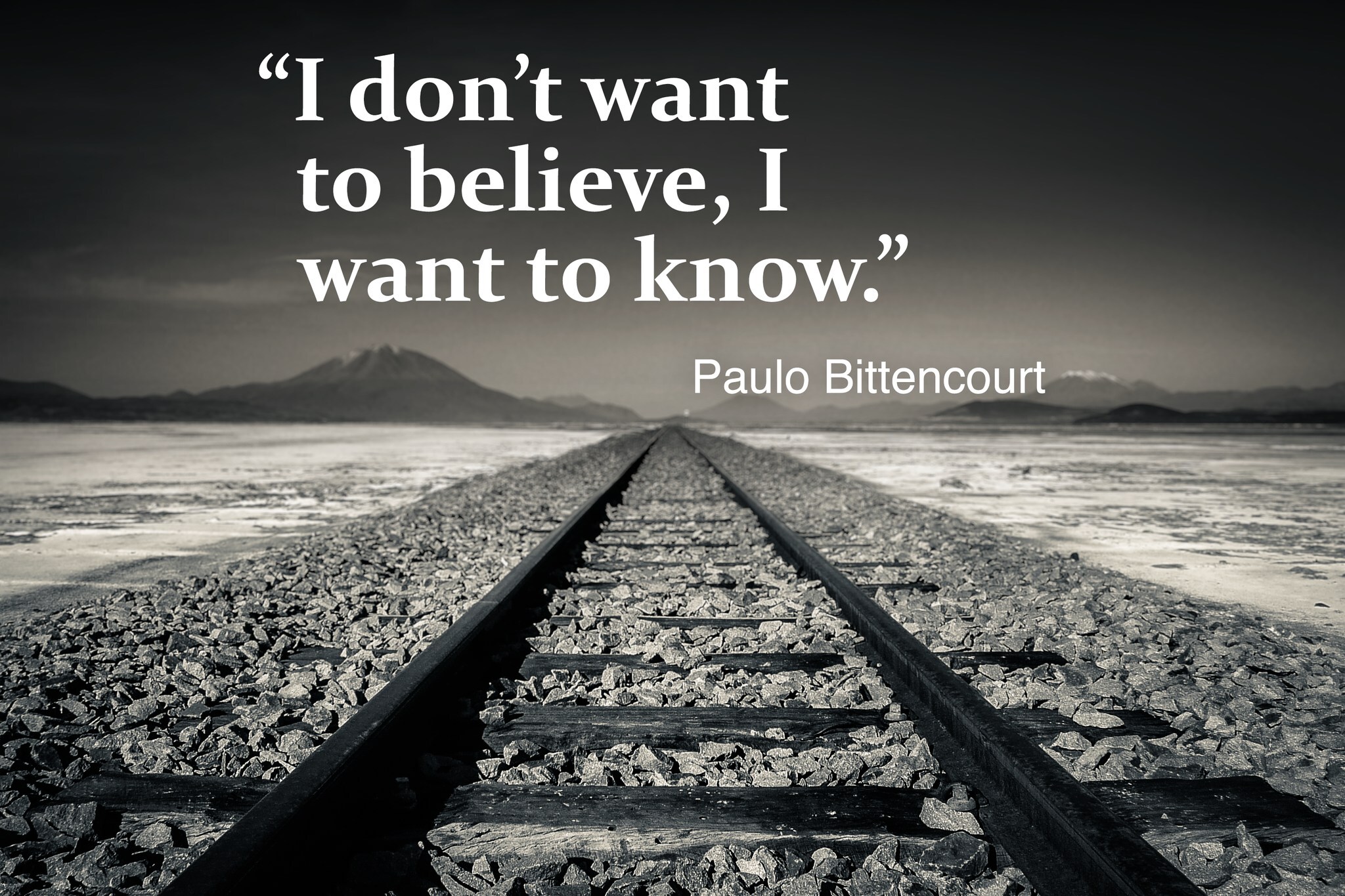Paulo Bitencourt's Blog: Paulo Bittencourt (Freethinker), page 4
August 6, 2025
“Liberto de la Religión: El Inestimable Placer de Ser Un Librepensador”, libro de Paulo Bittencourt
Visite:
Ateísmo, Humanismo y Libre Pensamiento
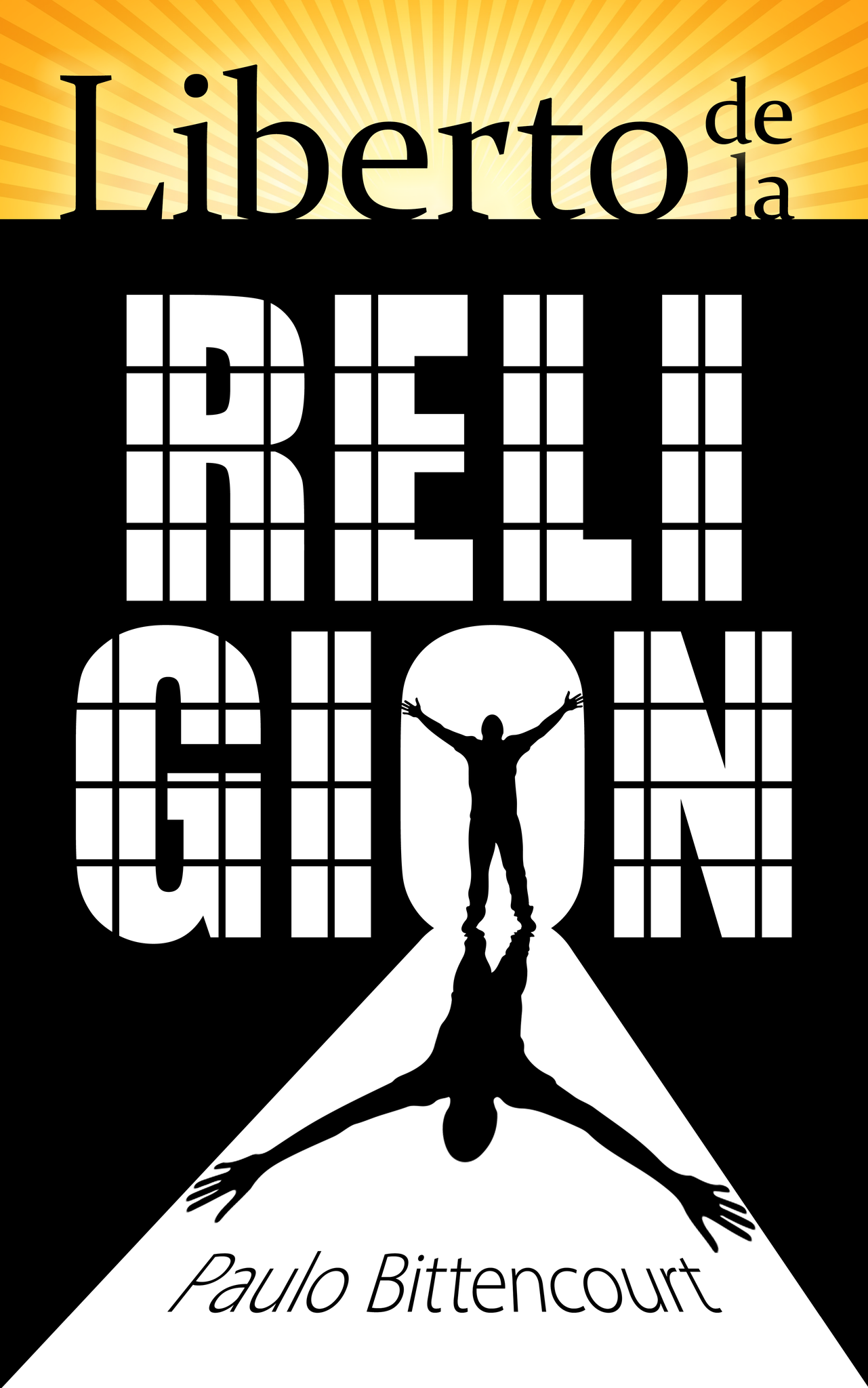
★ ★ ★ ★ ★ “Los libros de Paulo Bittencourt son mejores que los de Richard Dawkings, Christopher Hitchens y Sam Harris también porque, a diferencia de ellos, que nunca fueron religiosos, él habla por experiencia.” (D. Barker)
Liberto de la Religión, el libro más odiado por religiones, credos, creencias, cultos, dogmas, iglesias, ritos, sectas, abades, adivinos, agoreros, apóstoles, arzobispos, astrólogos, ayatolás, babalaos, beatos, brujos, capellanes, cardenales, cartomantes, chamanes, clérigos, curanderos, deanes, decanos, devotos, diáconos, eclesiásticos, encantadores, evangelistas, frailes, gurús, hechiceros, iluminados, imanes, masones, médiums, misioneros, monjes, monseñores, nigromantes, nuncios, obispos, ocultistas, padres, papas, párrocos, pastores, patriarcas, pontífices, predicadores, prelados, presbíteros, primados, priores, profetas, rabinos, religiosos, reverendos, sacerdotes, vicarios y videntes.
A pesar de la enorme expansión del conocimiento, del gran avance de la Ciencia (con nuestras sondas espaciales explorando los confines del Sistema Solar) y de todo pensamiento filosófico, 250 años tras de la Ilustración, en pleno siglo XXI, miles de millones de personas todavía piensan ser imprescindible creer en las primitividades de las religiones.
Mientras las religiones mundiales mutuamente se desprecian, miles de denominaciones cristianas pelean por el título de “La Iglesia Verdadera”. Con todo, en el combate a la razón y en la imposición de sus dogmatismos a toda sociedad, fingen unión y armonía.
Al paso que el Islam cada vez más se radicaliza, países del Tercer Mundo están siendo escenario de un galopante aumento de intolerancia religiosa perpetrada por pentecostales que buscan convertirlos en teocracias evangélicas.
A partir de su experiencia personal con el literalismo bíblico, Paulo Bittencourt hace un abordaje histórico del fundamentalismo cristiano y expone las falacias de los dogmas religiosos, los efectos negativos de la supresión del pensamiento crítico y los beneficios que vivir sin religión trae al individuo y, consecuentemente, al mundo.
Temas abordados: Alá, Ateísmo, Biblia, Cielo, Ciencia, Comunismo, Cristianismo, Diablo, Dios, Escepticismo, Evolución, Filosofía, Gospel, Humanismo, Iglesia Adventista, Bautista, Católica, Evangélica, Pentecostal, Universal, Infierno, Islam, Jesús, Judaísmo, Libre Pensamiento, Mahoma, Protestantismo, Satanás, Socialismo, etc.
Paulo Bittencourt nació en Paraná, Brasil, pasó la infancia en Rio de Janeiro y estudió Teología en São Paulo. Cerca de convertirse en pastor, tuvo dudas, abandonó la facultad, se aventuró por Europa y acabó radicándose en Austria. El libro “Ética”, de Bento de Espinosa (Baruch Spinoza), robusteció su escepticismo y lo consolidó como librepensador. Paulo Bitencourt dedica su vida a ayudar personas a libertarse de la religión.
Paulo Bittencourt es autor también de los libros Wasting Time on God y Com Zeus Não Se Brinca.

★ ★ ★ ★ ★ “Los libros de Paulo Bittencourt son mejores que los de Richard Dawkings, Christopher Hitchens y Sam Harris también porque, a diferencia de ellos, que nunca fueron religiosos, él habla por experiencia.” (D. Barker)
Liberto de la Religión, el libro más odiado por religiones, credos, creencias, cultos, dogmas, iglesias, ritos, sectas, abades, adivinos, agoreros, apóstoles, arzobispos, astrólogos, ayatolás, babalaos, beatos, brujos, capellanes, cardenales, cartomantes, chamanes, clérigos, curanderos, deanes, decanos, devotos, diáconos, eclesiásticos, encantadores, evangelistas, frailes, gurús, hechiceros, iluminados, imanes, masones, médiums, misioneros, monjes, monseñores, nigromantes, nuncios, obispos, ocultistas, padres, papas, párrocos, pastores, patriarcas, pontífices, predicadores, prelados, presbíteros, primados, priores, profetas, rabinos, religiosos, reverendos, sacerdotes, vicarios y videntes.
A pesar de la enorme expansión del conocimiento, del gran avance de la Ciencia (con nuestras sondas espaciales explorando los confines del Sistema Solar) y de todo pensamiento filosófico, 250 años tras de la Ilustración, en pleno siglo XXI, miles de millones de personas todavía piensan ser imprescindible creer en las primitividades de las religiones.
Mientras las religiones mundiales mutuamente se desprecian, miles de denominaciones cristianas pelean por el título de “La Iglesia Verdadera”. Con todo, en el combate a la razón y en la imposición de sus dogmatismos a toda sociedad, fingen unión y armonía.
Al paso que el Islam cada vez más se radicaliza, países del Tercer Mundo están siendo escenario de un galopante aumento de intolerancia religiosa perpetrada por pentecostales que buscan convertirlos en teocracias evangélicas.
A partir de su experiencia personal con el literalismo bíblico, Paulo Bittencourt hace un abordaje histórico del fundamentalismo cristiano y expone las falacias de los dogmas religiosos, los efectos negativos de la supresión del pensamiento crítico y los beneficios que vivir sin religión trae al individuo y, consecuentemente, al mundo.
Temas abordados: Alá, Ateísmo, Biblia, Cielo, Ciencia, Comunismo, Cristianismo, Diablo, Dios, Escepticismo, Evolución, Filosofía, Gospel, Humanismo, Iglesia Adventista, Bautista, Católica, Evangélica, Pentecostal, Universal, Infierno, Islam, Jesús, Judaísmo, Libre Pensamiento, Mahoma, Protestantismo, Satanás, Socialismo, etc.
Paulo Bittencourt nació en Paraná, Brasil, pasó la infancia en Rio de Janeiro y estudió Teología en São Paulo. Cerca de convertirse en pastor, tuvo dudas, abandonó la facultad, se aventuró por Europa y acabó radicándose en Austria. El libro “Ética”, de Bento de Espinosa (Baruch Spinoza), robusteció su escepticismo y lo consolidó como librepensador. Paulo Bitencourt dedica su vida a ayudar personas a libertarse de la religión.
Paulo Bittencourt es autor también de los libros Wasting Time on God y Com Zeus Não Se Brinca.
Published on August 06, 2025 01:34
“Liberated from Religion: The Inestimable Pleasure of Being a Freethinker”, book by Paulo Bittencourt
Visit:
Atheism, Humanism and Freethought
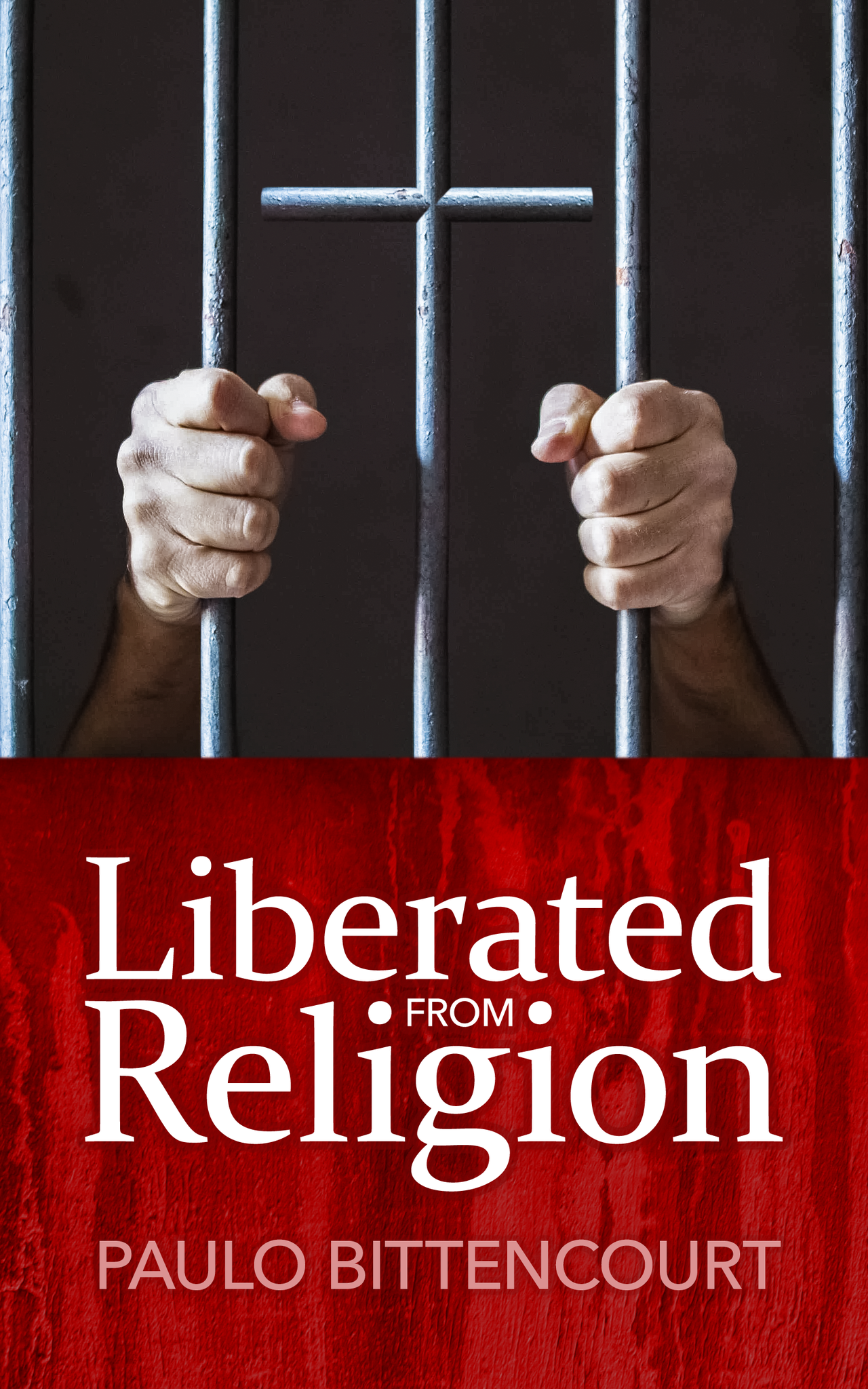
★ ★ ★ ★ ★ “The books by Paulo Bittencourt are better than those by Richard Dawkings, Christopher Hitchens and Sam Harris also because, unlike them, who have never been religious, he speaks from experience.” (D. Barker)
Liberated from Religion, the book most hated by religions, creeds, beliefs, cults, dogmas, churches, rites, sects, abbots, apostles, archbishops, archdeacons, archimandrites, archpriests, astrologers, augurs, ayatollahs, babalawos, babalorishas, beati, bishops, canons, cardinals, chaplains, clerics, deacons, deans, devotees, divines, ecclesiastics, enchanters, enlightened ones, evangelists, faith healers, fortune tellers, friars, gurus, imams, magicians, mediums, missionaries, monks, monsignors, necromancers, nuncios, occultists, pastors, patriarchs, pontiffs, popes, preachers, prelates, presbyters, priests, primates, priors, prophets, protodeacons, rabbis, religious, reverends, seers, shamans, shamans, sorcerers, vicars, witch doctors and witches.
Despite the enormous expansion of knowledge, the great advances in Science (with our space probes exploring the boundaries of the Solar System) and all philosophical thought, 250 years after the Enlightenment billions of people still think it’s indispensable to believe religious primitivenesses.
While the world religions despise each other, thousands of Christian denominations fight over the “The True Church” title. Yet, in their combat against reason and in the imposition of their dogmatisms on the whole of society, they feign unity and harmony.
As Islam becomes ever more radicalized, Third World countries are being the stage of a galloping increase in religious intolerance perpetrated by Pentecostals who seek to convert them into Evangelical theocracies.
Based on his personal experience with biblical literalism, Paulo Bittencourt takes a historical approach to Christian fundamentalism and exposes the fallacies of religious dogmas, the negative effects of suppressing critical thinking and the benefits that living without religion brings the individual and, consequently, the world.
Topics covered: Allah, Atheism, Bible, Christianity, Adventist, Baptist, Catholic, Evangelical, Pentecostal Church, Communism, Devil, Evolution, Freethought, God, Gospel, Humanism, Heaven, Hell, Islam, Jesus, Judaism, Mohammed, Philosophy, Protestantism, Satan, Science, Skepticism, Socialism, etc.
Paulo Bittencourt was born in Paraná, Brazil, spent his childhood in Rio de Janeiro and studied Theology in São Paulo. Close to becoming a pastor, he had doubts, dropped out of college, ventured through Europe and ended up settling in Austria. The book “Ethics”, by Bento de Espinosa (Baruch Spinoza), strengthened his skepticism and consolidated him as a freethinker. Paulo Bitencourt dedicates his life to helping people liberate themselves from religion.
Paulo Bittencourt is the author also of the books Wasting Time on God and Com Zeus Não Se Brinca (Zeus Is Not to Be Played With).

★ ★ ★ ★ ★ “The books by Paulo Bittencourt are better than those by Richard Dawkings, Christopher Hitchens and Sam Harris also because, unlike them, who have never been religious, he speaks from experience.” (D. Barker)
Liberated from Religion, the book most hated by religions, creeds, beliefs, cults, dogmas, churches, rites, sects, abbots, apostles, archbishops, archdeacons, archimandrites, archpriests, astrologers, augurs, ayatollahs, babalawos, babalorishas, beati, bishops, canons, cardinals, chaplains, clerics, deacons, deans, devotees, divines, ecclesiastics, enchanters, enlightened ones, evangelists, faith healers, fortune tellers, friars, gurus, imams, magicians, mediums, missionaries, monks, monsignors, necromancers, nuncios, occultists, pastors, patriarchs, pontiffs, popes, preachers, prelates, presbyters, priests, primates, priors, prophets, protodeacons, rabbis, religious, reverends, seers, shamans, shamans, sorcerers, vicars, witch doctors and witches.
Despite the enormous expansion of knowledge, the great advances in Science (with our space probes exploring the boundaries of the Solar System) and all philosophical thought, 250 years after the Enlightenment billions of people still think it’s indispensable to believe religious primitivenesses.
While the world religions despise each other, thousands of Christian denominations fight over the “The True Church” title. Yet, in their combat against reason and in the imposition of their dogmatisms on the whole of society, they feign unity and harmony.
As Islam becomes ever more radicalized, Third World countries are being the stage of a galloping increase in religious intolerance perpetrated by Pentecostals who seek to convert them into Evangelical theocracies.
Based on his personal experience with biblical literalism, Paulo Bittencourt takes a historical approach to Christian fundamentalism and exposes the fallacies of religious dogmas, the negative effects of suppressing critical thinking and the benefits that living without religion brings the individual and, consequently, the world.
Topics covered: Allah, Atheism, Bible, Christianity, Adventist, Baptist, Catholic, Evangelical, Pentecostal Church, Communism, Devil, Evolution, Freethought, God, Gospel, Humanism, Heaven, Hell, Islam, Jesus, Judaism, Mohammed, Philosophy, Protestantism, Satan, Science, Skepticism, Socialism, etc.
Paulo Bittencourt was born in Paraná, Brazil, spent his childhood in Rio de Janeiro and studied Theology in São Paulo. Close to becoming a pastor, he had doubts, dropped out of college, ventured through Europe and ended up settling in Austria. The book “Ethics”, by Bento de Espinosa (Baruch Spinoza), strengthened his skepticism and consolidated him as a freethinker. Paulo Bitencourt dedicates his life to helping people liberate themselves from religion.
Paulo Bittencourt is the author also of the books Wasting Time on God and Com Zeus Não Se Brinca (Zeus Is Not to Be Played With).
Published on August 06, 2025 01:34
Quote “I don’t want to believe, I want to know.”, by Paulo Bittencourt
The best books on Atheism, Humanism and Freethought: “Liberated from Religion” and “Wasting Time on God”, by Paulo Bittencourt.
Click on this image for more quotes by Paulo Bitencourt:
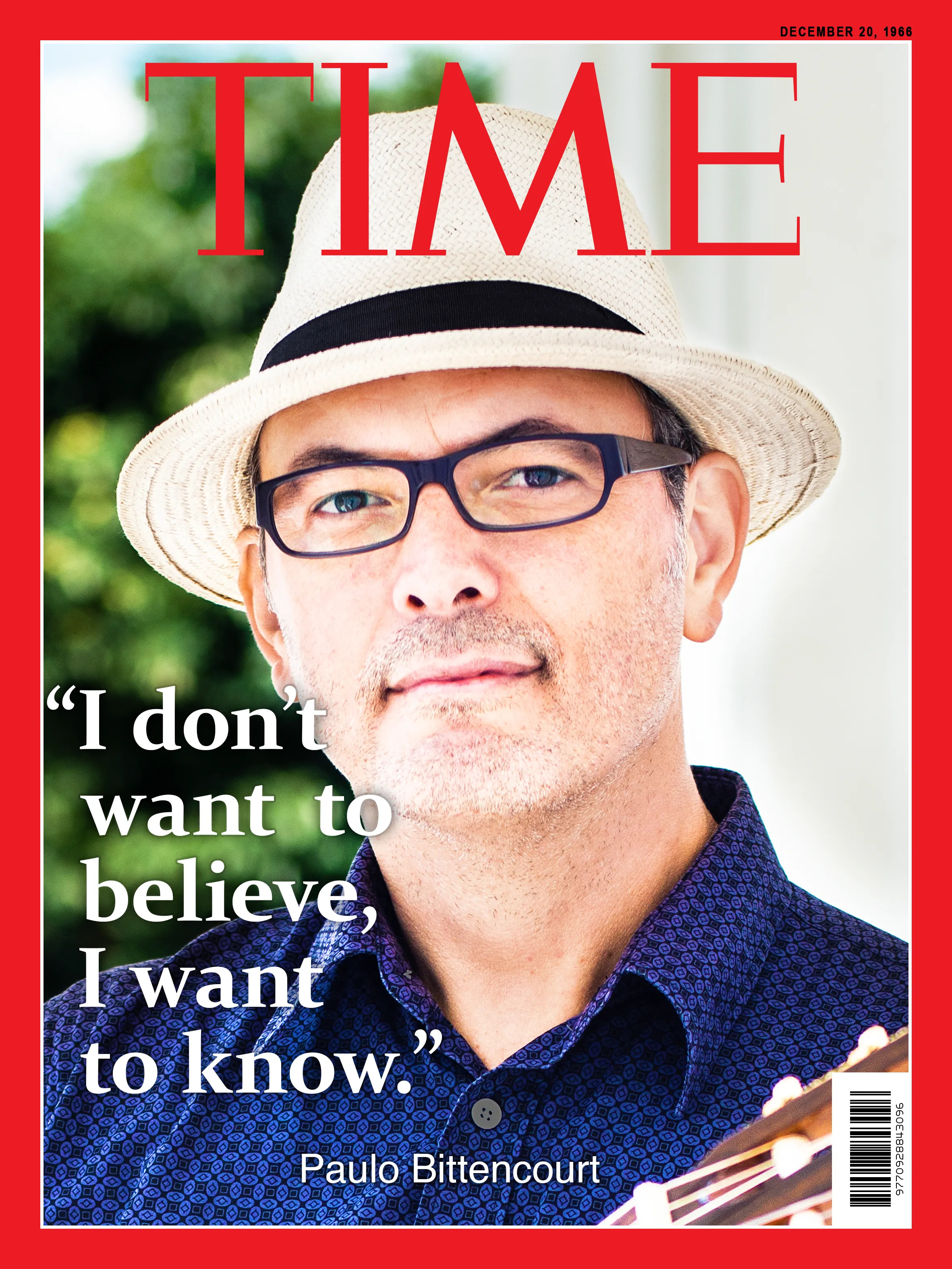
Click on this image for more quotes by Paulo Bitencourt:

Published on August 06, 2025 01:34
Paulo Bittencourt's official websites
Books “Liberated from Religion”, “Wasting Time on God”, “Liberto da Religião”, “Perdendo Tempo Com Deus”, “Com Zeus Não Se Brinca” and “Liberto de la Religión”, by Paulo Bitencourt.
Freethought, Humanism and Atheism.
https://liberatedfromreligion.wordpre...
https://ateismohumanismo.wordpress.com
https://humanismoateismo.wordpress.com
https://atheismushumanismus.wordpress...
https://paulbittencourt.wordpress.com
Freethought, Humanism and Atheism.
https://liberatedfromreligion.wordpre...
https://ateismohumanismo.wordpress.com
https://humanismoateismo.wordpress.com
https://atheismushumanismus.wordpress...
https://paulbittencourt.wordpress.com
Published on August 06, 2025 01:34
Is the Bible really the Word of God?
Article by Paulo Bittencourt, freethinker, humanist and atheist and author of the books “Liberated from Religion: The Inestimable Pleasure of Being a Freethinker” and “Wasting Time on God: Why I Am an Atheist”:
https://liberatedfromreligion.wordpre...
https://liberatedfromreligion.wordpre...
Published on August 06, 2025 01:34
“I don’t want to believe, I want to know.” (Paulo Bittencourt)
Published on August 06, 2025 01:33
•
Tags:
atheism, bible, catholic-church, christianity, devil, evangelical, evolution, freethought, god, gospel, hell, humanism, islam, jesus, pastor, pentecostal, philosophy, protestantism, satan
Carl Sagan never said or wrote “I don’t want to believe, I want to know.” The internet is full of misattributions, and this is one of them. The author of this sentence is Paulo Bittencourt, who wrote the book “Liberated from Religion”.
“I don’t want to believe, I want to know.”
— Paulo Bitencourt
Books: Liberated from Religion and Wasting Time on God.
Visit: Atheism, Humanism and Freethought
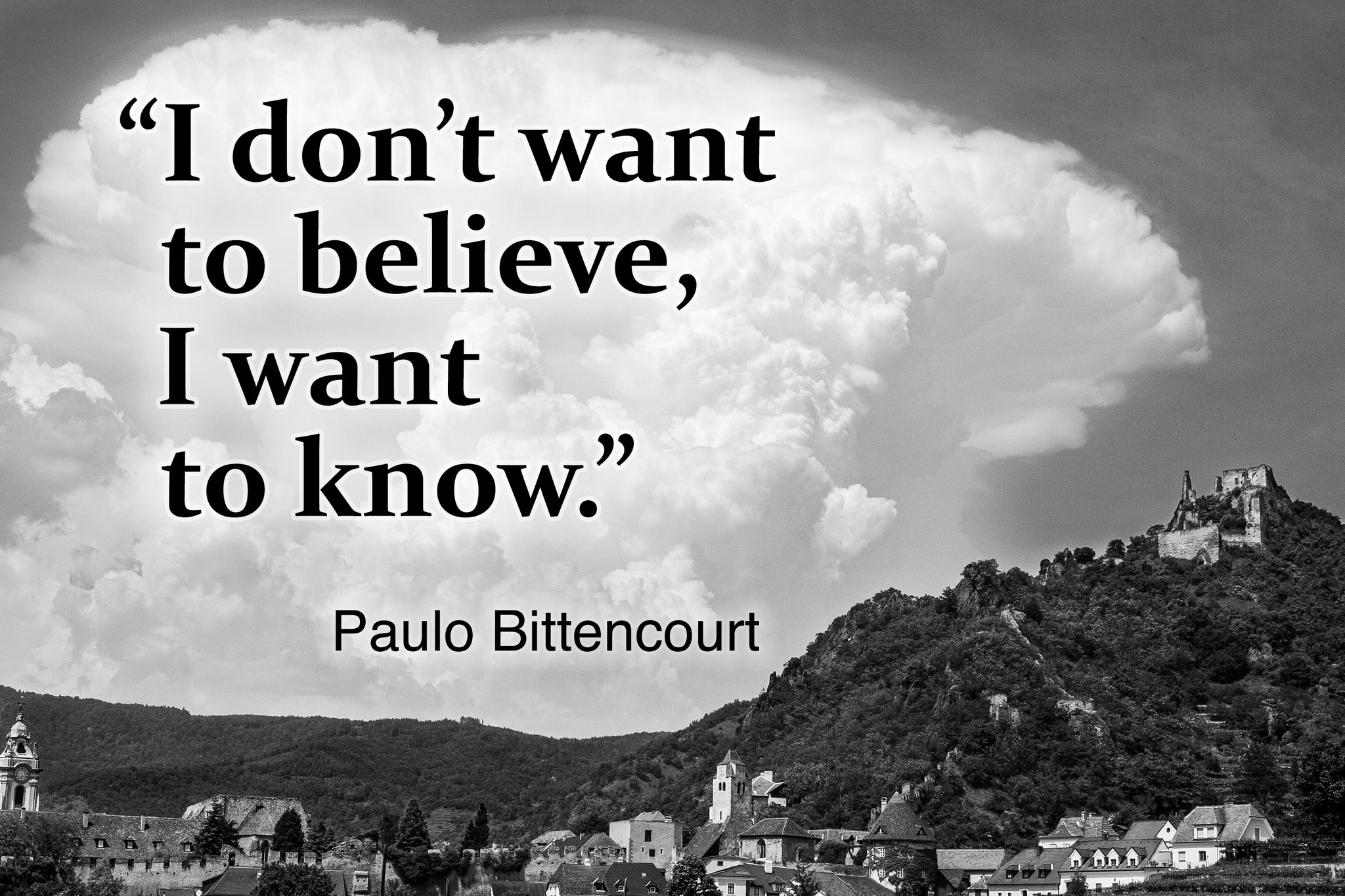
— Paulo Bitencourt
Books: Liberated from Religion and Wasting Time on God.
Visit: Atheism, Humanism and Freethought

Published on August 06, 2025 01:32
•
Tags:
atheism, bible, catholic-church, christianity, devil, evangelical, evolution, freethought, god, gospel, hell, humanism, islam, jesus, pastor, pentecostal, philosophy, protestantism, satan
Carl Sagan nunca disse ou escreveu “Não quero crer, quero saber”. A internet está cheia de atribuições errôneas, e esta é uma delas. O autor desta frase é Paulo Bittencourt, que escreveu o livro “Liberto da Religião”.
“Não quero crer, quero saber.”
— Paulo Bitencourt
Livros: Liberto da Religião, Perdendo Tempo Com Deus e Com Zeus Não Se Brinca.
Visite: Ateísmo, Humanismo e Livre Pensamento
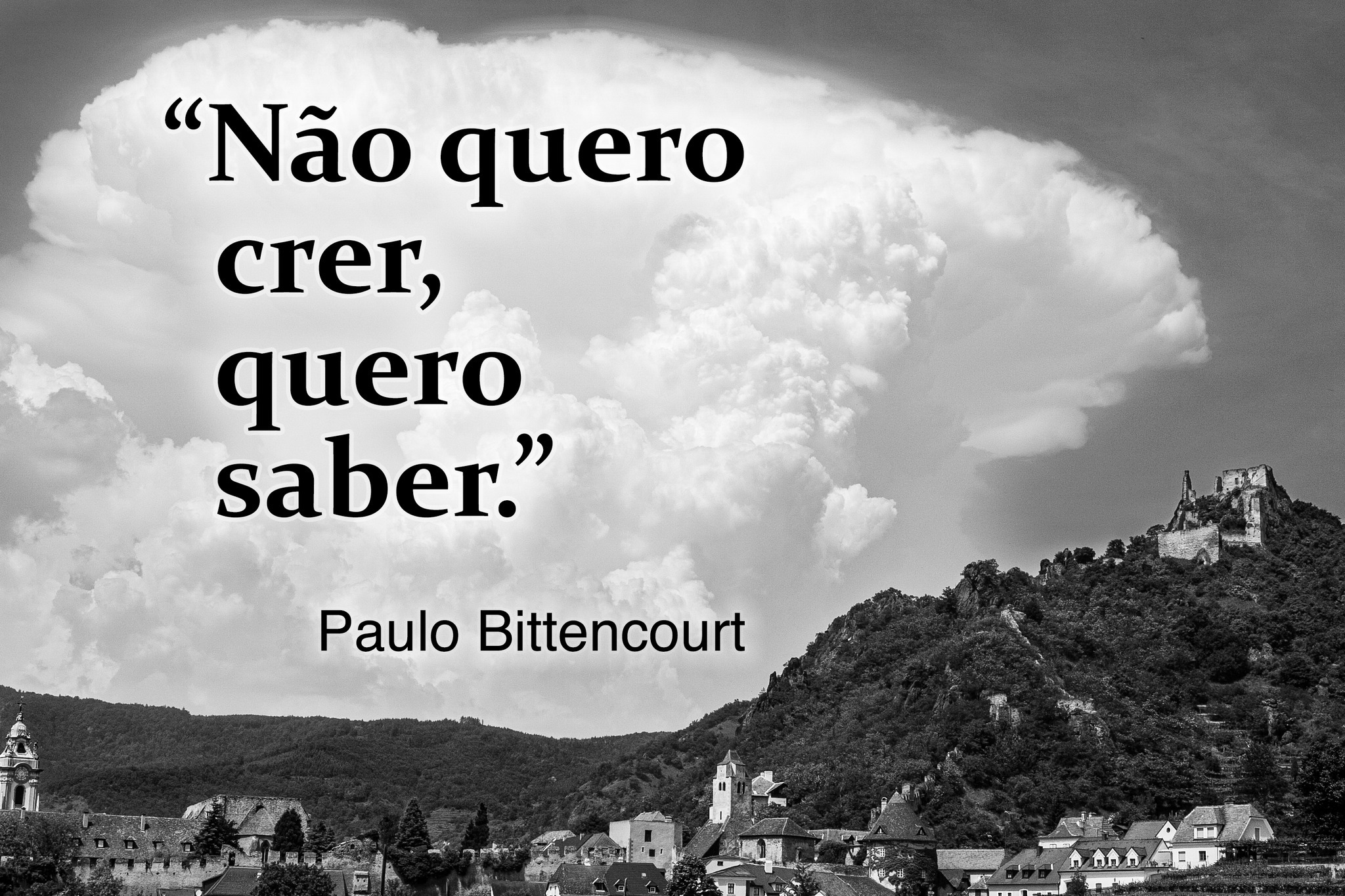
— Paulo Bitencourt
Livros: Liberto da Religião, Perdendo Tempo Com Deus e Com Zeus Não Se Brinca.
Visite: Ateísmo, Humanismo e Livre Pensamento

Published on August 06, 2025 01:32
•
Tags:
ateísmo, bíblia, cristianismo, deus, diabo, evangélica, evolução, filosofia, gospel, humanismo, igreja-católica, inferno, islã, jesus, livre-pensamento, pastor, pentecostal, protestantismo, satanás, universal
Paulo Bittencourt’s Life as a Singer and as an Actor
Paulo Bitencourt, the author of the best books on Atheism, “Wasting Time on God” and “Liberated from Religion”, performed on many stages around the world, even at the Carnegie Hall, in New York.
These are some stations of his artistic life, mainly in Vienna, Austria: https://liberatedfromreligion.wordpre...
These are some stations of his artistic life, mainly in Vienna, Austria: https://liberatedfromreligion.wordpre...
Published on August 06, 2025 01:32
Paulo Bittencourt (Freethinker)
Author of the books “Liberated from Religion” and “Wasting Time on God”, Paulo Bittencourt was born in Paraná, Brazil, spent his childhood in Rio de Janeiro and studied Theology in São Paulo. Close to
Author of the books “Liberated from Religion” and “Wasting Time on God”, Paulo Bittencourt was born in Paraná, Brazil, spent his childhood in Rio de Janeiro and studied Theology in São Paulo. Close to becoming a pastor, he had doubts, dropped out of college, ventured through Europe and ended up settling in Austria. The book “Ethics”, by Bento de Espinosa (Baruch Spinoza), strengthened his skepticism and consolidated him as a freethinker.
Visit: https://liberatedfromreligion.wordpre...
⎯⎯⎯⎯⎯⎯⎯⎯⎯
Autor dos livros “Liberto da Religião”, “Perdendo Tempo Com Deus” e “Com Zeus Não Se Brinca”, Paulo Bittencourt nasceu no Paraná, passou a infância no Rio de Janeiro e estudou Teologia em São Paulo. Perto de se tornar pastor, teve dúvidas, abandonou a faculdade, aventurou-se pela Europa e acabou se radicando na Áustria. O livro “Ética”, de Bento de Espinosa, robusteceu seu ceticismo e o consolidou como livre-pensador.
Visite: https://ateismohumanismo.wordpress.com
...more
Visit: https://liberatedfromreligion.wordpre...
⎯⎯⎯⎯⎯⎯⎯⎯⎯
Autor dos livros “Liberto da Religião”, “Perdendo Tempo Com Deus” e “Com Zeus Não Se Brinca”, Paulo Bittencourt nasceu no Paraná, passou a infância no Rio de Janeiro e estudou Teologia em São Paulo. Perto de se tornar pastor, teve dúvidas, abandonou a faculdade, aventurou-se pela Europa e acabou se radicando na Áustria. O livro “Ética”, de Bento de Espinosa, robusteceu seu ceticismo e o consolidou como livre-pensador.
Visite: https://ateismohumanismo.wordpress.com
...more
- Paulo Bitencourt's profile
- 8 followers


